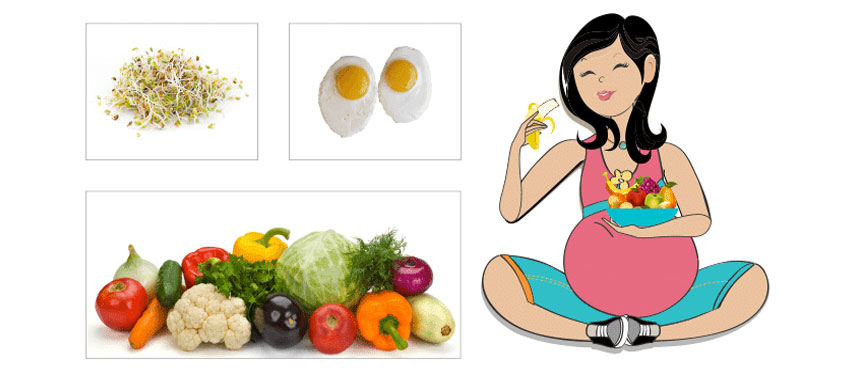by Suman Gupta
By Dr.C.Jayasree Reddy,Senior Obstetrician & Gynecologist, Ankura Hospital for Women & Children
“Pregnancy is one of the most joyous times in a woman’s life, but it’s also a period of transformation. Many physiological changes occur inside a woman’s body. In order to accommodate and encourage the growth of the baby, pregnant women must eat right, ensure that they consume certain key nutrients,” says Dr.C.Jayasree Reddy, MD, DGO, Senior Obstetrician & Gynecologist, Ankura Hospital for Women & Children.
Pregnancy is often associated with eating whatever one wants and having complete rest, which is untrue! It is important that specific nutritional requirements of both the mother and baby must be met. At this time, the fetus takes shape and forms inside the womb and the mother’s body changes rapidly to accommodate the growing baby. This increases the overall caloric needs of a pregnant woman. Caloric intake should be increased by approximately 300 kcal/day i.e., an extra meal a day will be added and short frequent meals are advised. An overall weight gain of approximately 9-11 kgs is healthy and essential for the mother.
Along with an increase in caloric intake, attention must be paid to the quality of food! Here are five essential macro and micronutrients for mother & baby during pregnancy –
-
Protein: A formative major nutrient for the baby, protein is present in good quantities in non-vegetarian foods like meat, chicken, and eggs, and vegetarian foods such as whole grains, cereals, beans, nuts, pulses, and soy. The recommended protein intake for pregnant women is around 60g/day.
-
Folic acid: Folic acid prevents neural tube defects and pregnant women should consume at least 0.4mg folic acid per day. Citrus fruits, dark green leafy vegetables, and nuts are some good sources of folic acid.
-
Iron: Iron requirement almost doubles during pregnancy. While green leafy vegetables and dates are good sources of iron, iron supplements containing both iron & folic acid may also be prescribed by the doctor. Some women may need iron supplements even before getting pregnant, which is why a preconception consultation is very important!
-
Vitamin D & Calcium: Vitamin D helps in the absorption of the mineral, Calcium, and both are essential for the baby’s teeth and bone growth. Foods like vitamin D fortified milk and eggs are good sources of this vitamin while paneer, buttermilk, and curd are good sources of calcium. Additionally, daily morning sun exposure is recommended because the skin synthesizes vitamin D when exposed to sunlight.

